|
In celebration of the Fourth General Congress of the Union of the Catholic Apostolate, the Catholic Apostolate Center will share weekly homilies from the Congress. Homily for July 3, 2024 “Rekindle in our hearts the commitment to be tireless missionary disciples of Jesus Christ” (From the prayer for the fourth General Congress) Dear Brothers and Sisters of the Pallottine Family,
We have taken the theme for our reflection today from the prayer for the fourth General Congress: “Rekindle in our hearts the commitment to be tireless missionary disciples of Jesus Christ.” This theme is very relevant today as we celebrate the feast of St. Thomas, the Apostle of India. He was indeed a tireless missionary disciple of Jesus who expressed his total commitment to the Risen Lord through his confession “My Lord and My God.” Saint Thomas the Apostle, also known as Didymus, meaning "Twin," was one of the Twelve Apostles of Jesus who is best known for doubting the resurrection of Jesus and demanding to feel Jesus' wounds before being convinced (John 20:24-29). This story is the origin of the term "Doubting Thomas." After seeing Jesus alive, Thomas professed his faith in Jesus, exclaiming "My Lord and my God!" presenting one of the first clear declarations of Christ's divinity. Southern India had maritime trade with the West since ancient times. Egyptian and Roman trade with India flourished in the first century. There existed flourishing trade in spices, pearls, diamonds and silk between Rome and Southern India. According to tradition, St. Thomas landed in Kodungallur, Kerala, India in 52 A.D. It is believed that St. Thomas established the "Seven and Half Churches." Here is the beginning of the Syro Malabar Catholic Church in India. I myself come from this Church, following the Syriac liturgical tradition. The tradition holds that St. Thomas was martyred during prayer by a spearing on the “Big Hill” near Madras, and was buried in Mylapore, on the east coast of India. Ultimately, St. Thomas’ remains were transported to Ortona, Italy, where they reside today. Thus, the so called "doubting Thomas" died a martyr for his faith. He became a messenger of the Gospel to India, a missionary who shed his own blood for the Master whom he encountered on that day. His insistence on touching the Holy Wounds presented the Disciple John another opportunity to explain for all of us the implications of the Bodily Resurrection of Jesus Christ. Thomas's response in his beautiful encounter with the Risen Lord, "My Lord and My God" reveals the heart of prayer. It also speaks to the essence of faith. His proclamation is a call to adoration and a living communion with God. St. Thomas was not a doubter, rather he was a believer. Pope St. Gregory the Great who occupied the Chair of Peter between 590 and 604 preached a marvelous homily on this encounter between Thomas and the Risen Lord. In it he asked: "What conclusion, dear brethren, do you come to? Surely it was not by chance that this chosen disciple, was missing in the first place? Or that on his return he heard, that hearing he doubted, that doubting he touched, and that touching he believed? God's Mercy worked wonderfully, for when that doubting disciple touched his Master's wounded flesh he cured the wound of our disbelief. So this doubting disciple, who actually touched, became a witness to the reality of the resurrection." Thus St. Thomas teaches us how to become a tireless missionary disciple of Jesus. The foundation to missionary discipleship is Baptism. As Pope Francis says, “Every Christian is a missionary to the extent that he or she has encountered the love of God in Christ Jesus: we no longer say that we are 'disciples' and 'missionaries,' but rather that we are always 'missionary disciples.'” (Joy of the Gospel, n. 120) The history of the Society of the Catholic Apostolate, like many other Congregations, shows that it was the missionary venture of one or two missionaries that led to the development of our charism in an entire country or even continent. Just one missionary went to Cameroun and Poland and today we have big Pallottine communities in those countries. Two German missionaries arrived in India in 1951 and today the Pallottines are a strong presence in this country. The Gospel is preached and millions of people are served. This is the story also of the entire Church. When the Union of Catholic Apostolate is composed of such missionary disciples of Jesus, who “are determined to remain united with the crucified and Risen Christ ever present among them,” (cfr. General Statute, n.19) it will truly be a spiritual, apostolic force in the Church. As members of the Union of Catholic Apostolate, we are all called to be missionary disciples of Jesus. We become a missionary to the extent we have experienced the love of God in Christ Jesus. Once we have touched the wounds of the Risen Lord, we go out as missionaries like St. Thomas the Apostle to bear witness to the power of the Resurrection and become healers of a broken humanity. I conclude with this prayer of St. Vincent Pallotti: “My Jesus, anyone who does not love you cannot live. May all the love of eternity, and if possible, all the love of infinite eternities, be mine in every moment for all eternity. For infinite eternities, be mine in every moment for all eternity. I be nothing but all the flames of love. My the passion of my Jesus and the sorrows of Mary be my book of all eternity, and fire and flames.” (OOCC X 226-227) Amen. Fr. Jacob Nampudakam, S.A.C. UAC President
0 Comments
As the Church prepares to celebrate World Mission Sunday, we invite you to read this post from Sister Mary Altar of Sacrifice about her missionary vocation. When I was in seventh grade, about the age of 12, I decided to plan my life. I thought that I urgently needed to have an idea and start preparing for my future. I decided that I would be a missionary. I wanted to go to Africa and care for the children, especially those in most need. I always desired to adopt many children, including many with different disabilities. However, the missing piece of my life puzzle was that I didn’t even know what “being a missionary” really meant, and I had never thought about how my vocation would fit into my life either. As time went on, I realized that it was true that I loved to be around and work with children, and I had a great desire in my heart to go out to the whole world to help those in most need. However, I also discovered that God had a very special calling and plan for me, to use me as His instrument. As Mother Teresa said, “I am a little pencil in God’s hands. He does the thinking, He does the writing. He does everything and sometimes it’s hard because it is a broken pencil and He has to sharpen it a little more.” My name is Sister Mary Altar of Sacrifice, and I grew up in Kansas City, Kansas and went to Catholic school my whole life, from kindergarten through college. Thanks be to God, I was given a Catholic upbringing not only at school but also at home. Although I have a truly bad memory, I distinctly remember the different moments of the sacraments in my life, and I believe that it was the grace of the sacraments that opened my heart and led me to discover my religious and missionary vocation. Preparing for First Communion, I remember arguing with my mom about not wanting to wear the fancy white dress. I really disliked dresses because I was a tomboy who grew up with 3 older brothers. However, I understood the importance of the sacrament and was so excited to receive Jesus that I knew that I had to look my very best! It wasn’t until I was preparing for the sacrament of Confirmation that I began to take my Catholic faith seriously and hold it as my own. Our religion teacher told us “this is the moment (Confirmation) that you become an adult in the Church and have to take your faith as your own, so you must decide what you will do with it!” After that, I continually got more involved in the Church throughout high school by joining the youth group, aiding with junior high youth group, lectoring, being a Eucharistic Minister, leading retreats, frequenting the sacraments of confession and communion, etc. I also had the opportunity to do a 2-week mission trip to Peru, which confirmed my early desire to do mission work abroad. The experience of leaving all behind to go serve another was exciting and invigorating. I could concretely see that these people materially were poorer than I, but to see the richness of the treasure of their faith was enlightening. Finally, the time came for me to decide which college I would go to. I decided instead that I would do a gap year of service in another country, but my parents had other plans for me, so my “missionary adventure” was put on hold. Thanks be to God, I decided to go to Benedictine College, where I fell even more in love with Jesus and my Catholic faith, discovered my religious vocation, and finished my degrees in Elementary and Special Education. A month after graduation, I entered the convent in Washington D.C. with the Servants of the Lord and the Virgin of Matara, a missionary order founded in Argentina and currently in over 40 countries. When I visited them for the first time during college, there was a moment of actual grace that I understood this is where God was calling me to fulfill my vocation, and here, He would fulfill all the desires of my heart. I could see the puzzle pieces all fit perfectly together. Now, I am currently a missionary in Papua New Guinea in Oceania and have been here for just over a year. My main apostolate (or missionary work) is in the Primary School of our parish, teaching and working to bring a higher level of integral education to our students. Since I have entered religious life, every day has been a “missionary adventure.” However, being a missionary doesn’t just mean going to another country. Through our Baptism, we have been called to follow Jesus and sent to be missionaries to the world. The first step is to evangelize ourselves. We must look at our life and ask, “am I truly living the Gospel in my daily life and following Jesus in everything I think, say, and do?” Then, we must complete Christ’s mandate to love our neighbors and bring the Gospel to those closest to us. Sometimes, this is even more challenging than leaving our own family and country to serve someone. We must learn to be missionaries in our daily lives and pray and discern to see where and how God is calling us to fulfill that mission. Some have a special calling to give their whole lives as priests or religious to do this work! In addition, God calls some—priests, religious, and laity—to be missionaries abroad. However, we, as Catholics, are all called to be missionaries. As St. Catherine of Siena said, “If you are who you were meant to be, you will set the world on fire!” So, I invite you to pray for the missions and all missionaries in the world in a special way during this month of missions, but also I invite you to take some time to listen and pray about how God is calling you to be a missionary in your life. For more resources on Vocational Discernment, please click here. **This post was originally published on 11/3/2020. AuthorSister Mary Altar of Sacrifice serves as a religious missionary in the Diocese of Vanimo, Papua New Guinea  As the pandemic eases in the United States and much begins to reopen, we have the opportunity to reflect on where we have been as Church and what we are called to do. Many are still suffering around the world and in the U.S. from the effects of the pandemic. This moment is a unique one to revive faith and rekindle charity as apostles of Christ. The Dogmatic Constitution on the Church of the Second Vatican Council, Lumen Gentium, reminds us: “The holy people of God shares also in Christ's prophetic office; it spreads abroad a living witness to him, especially by means of a life of faith and charity and by offering to God a sacrifice of praise, the tribute of lips which give praise to his name” (12). We are co-responsible as the baptized to witness Christ in what we say and do. If we say that we are believers in Jesus Christ, then we need to show our faith by what we do for others. Seems easy. It is not, as we know. We cannot go about it alone. We need the grace provided by Christ, particularly in the Sacraments, especially the Eucharist. This is why livestreams of Mass are not enough. We need to receive Christ in the midst of the community of faith, the Church, and then strengthened by him and the community, we can go forth in his name, doing his mission. What an amazing responsibility we have! To live it well, we must be living witnesses of Christ. Pope Francis invites us, in line with the exhortation of many saints, to take it a step further: “Do not be afraid to set your sights higher, to allow yourself to be loved and liberated by God. Do not be afraid to let yourself be guided by the Holy Spirit. Holiness does not make you less human, since it is an encounter between your weakness and the power of God’s grace. For in the words of León Bloy, when all is said and done, ‘the only great tragedy in life, is not to become a saint’” (Gaudete et Exsultate, 34). May the Charity of Christ urge us on!
On Pentecost we celebrate the gifting of the Holy Spirit to the Apostles in the Upper Room. For nine days past they have been hiding in fear, awaiting this gift, the Advocate. The Holy Spirit descends upon the Church in an outpouring of love, and with Mary as their guide, the disciple’s mission begins: proclaiming the Kingdom, outpouring their gifts, and healing the world.
The Apostles were filled with fear up to this point. They had witnessed the Risen Lord’s Ascension into Heaven, and still their purpose was not yet realized. The liturgical calendar enables the faithful to reflect on our own lives, hearts, and mission. We are called to place ourselves in the very heart of the story, to participate as if this very event is happening today. And so Pentecost beckons the questions: “In what ways am I in the Upper Room, unsure of how the Lord is calling me to serve?” “What brings my heart to fear?” “In what ways am I holding onto lies, listening to a voice that is not the Lord’s?” Jesus Christ chose men and women who, like you and me, struggled with human fears, human sin, and human misunderstanding. We can resonate with their experience in the Upper Room, awaiting guidance and courage. The moment the Holy Spirit descends on those in the Upper Room, everything changes and their hearts are transformed. The Apostles baptized 3,000 people that very day. The mission of the Church begins, and the Apostles are equipped with what is needed to live out that mission. From Pentecost onward, the Gospel was shared and people were baptized from as far as India to Spain; miracles and healings took place in Jesus’ name! Now in 2021, we have the same Spirit, and this brings our hearts great hope. This is the very Spirit given to us in our Baptism and Confirmation! We have the power to spread the love and message of Jesus’ life and Resurrection to others because we are equipped with all that is necessary. It is easy to read of the Early Christians who bravely faced martyrdom and changed the world and to just dismiss it, as if the Spirit within them has diminished over time and no longer carries the same power. No, the call of the Christian is to open our hearts to this very same Spirit and ask Him to show us the path to love. The same Spirit that transformed the world through the Apostles can transform our world today. In our ordinary lives there can be extraordinary love, sacrifice, and renewal in and through the power of the Holy Spirit. Today we are called to open our hearts to the Holy Spirit’s transformative love, asking Him to show us the path to mission. In what ways is He calling you outside of yourself to love those around you? How can you let go of fear and open your heart to the burning fire of His love for you and the whole world? “For God did not give us a spirit of timidity but a spirit of power and love and self-control.” 2 Timothy 1:7
For the past 145 years on the Feast of Our Lady of Mt. Carmel (16th of July) in my hometown of Hammonton, New Jersey, there is a procession through the streets of the statues of various saints that usually reside inside the local parish church. The faithful who are devoted to each saint distribute prayer cards of their patron as they process with the statues through the streets – St. Joseph, St. Anne, St. Anthony, St. Rita, St. Jude, St. Rocco, St. Lucy, St. Vincent Pallotti, and so forth. The Blessed Mother, while at the end under the title of Our Lady of Mt. Carmel, appears also in the procession under various names – Milagrosa, Nuestra Señora de Guadalupe, Our Lady of the Assumption, and the Immaculate Conception, whose Solemnity we celebrate today.
Sometimes, these various titles and ways of representing the Blessed Mother can be confusing for some of those who line the streets of the procession route. My mother, Angela, who has been part of the procession for over 50 years, makes a float with a large Rosary and a statue of the Blessed Mother under the title of the Immaculate Conception on it, although some would call the statue “Our Lady of Grace.” The statue, which is over 100 years old, is patterned after the image on the “Miraculous Medal,” around which is inscribed the words, “O Mary, conceived without sin, pray for us who have recourse to thee.” Since many who come to the procession are not necessarily practicing Catholics, my mother always offers a form of “street evangelization” to those who come to her float to receive a prayer folder that provides instructions on how to say the Rosary. Since the statue of the Immaculate Conception is on a special float, many will come and ask if it is of Our Lady of Mt. Carmel. Sometimes, my mother is asked what the difference is between the Immaculate Conception and Our Lady of Mt. Carmel. She responds cheerfully, “Same Lady, different dress.” My mother then goes on to explain why the Blessed Mother has so many titles. She also assists these curious onlookers in understanding how Mary offers us the greatest example of how to follow Jesus as his disciple. She helps them learn that Mary was prepared from the time of her conception in the womb of her mother, St. Anne, to receive Jesus and did so throughout her life. We, too, are meant to be prepared to receive Jesus into our lives in an ongoing way, especially during the Advent season. We have not been conceived without sin, but we have been washed clean of Original Sin at Baptism (and all prior sin, if one was baptized as an adult). While we have all sinned since that time, our Baptism offers us a share in the mission of Jesus Christ as Priest, Prophet, and King. Though followers or disciples, he also sends us as apostles, or as missionary disciples, out into our challenging world to witness to him by what we say and do. The Blessed Virgin Mary offers us the best example of how to follow Jesus Christ. No matter what title of hers might appeal to us spiritually, she is always “same Lady, different dress.” She was the same in her following of Jesus during her life and continues from her heavenly home to invite us to follow her Son, Jesus Christ, Our Savior and Lord. O Mary, conceived without sin, pray for us who have recourse to thee! The Catholic Apostolate Center is a ministry of the Immaculate Conception Province of the Society of the Catholic Apostolate (Pallottine Fathers and Brothers). The Pallottines and the Center staff will remember you in special prayer on this Solemnity of the Immaculate Conception.
In the autumn of 2015, I hit a major crossroad in my life. I was in the fall semester of my senior year at The Catholic University of America aspiring to be a missionary for at least a year of service after graduation. In the midst of many applications, however, something within me was not completely settled. What was this strange complexity I experienced? I knew well enough what I wanted to do, yet at the same time, the thought of doing missionary work did not satisfy me in terms of who I knew God wanted me to become. The honest truth is that I was avoiding a religious vocation I had felt a deep calling to since the time I was 15. Besides the normal sacrifices that accompany entering religious life, there was a particular cross that hovered over my zealous missionary dreams: I would, for the most part, never see the fruits of my apostolic work. That is because I was being called to the contemplative cloistered life as a Discalced Carmelite nun. Vatican Council II’s document Venite Seorsum states that “by vivifying the entire Mystical Body by the fervor of their love, and by bolstering the various efforts of the apostolate, which are indeed nothing without charity, contemplatives raise the level of the spiritual life of the whole Church.” Since I truly did believe this, what was holding me back? Perhaps I anticipated the experience of contemplatives who, though joyfully faithful to their life of intercessory prayer and penance, nevertheless often feel the deprivation of never seeing the beautiful results of their undeterred missionary zeal: of one’s student having come to faith in Christ, of a nursing Sister who receives the gratitude of her well-loved patients, of the missionary who thrills in taking the Gospel to far-off lands. Such was the interior crucifixion of St. Thérèse, who felt in her heart the vocation of an apostle, missionary, and martyr, yet discovered in her Little Way the secret of serving God as He desires. St. John of the Cross teaches that one act of pure love is worth more in God’s sight than all other works put together. I slowly realized that being a missionary disciple is not about what I wanted to do for God, as it was about allowing Him to transform my heart so that I would be willing to love for Love’s sake alone. A few days before my First Vows, my confessor told me that my religious Profession would purify me of sin to the extent that I was after my baptism “because Profession is an act of perfect charity; it is loving surrender that God desires.” My Profession gave me the key to my vocation: it is God who is on mission in my heart, in and through me. In closing, I invite you to prayerfully reflect with these questions: do I place more emphasis on what I want to do for God, rather than on developing a love-relationship with Him? Do I know that my life of prayer must be both one of contemplative intimacy alone with God, as well as mission? Do I insist on seeing the fruits of my labors, and if not, grow discouraged? Have I ever considered or studied the cloistered contemplatives’ role in the Church? Let us remain united in prayer and in mission! To learn more about vocational discernment, please click here. To learn more about Carmelite spirituality, please click here. One of the things I love about Catholicism is that we celebrate the mysteries of our faith in a physical way. Going to Mass, kneeling, standing, singing, receiving the Eucharist, hearing and proclaiming the Word of God, experiencing community after Mass or at parish events. Some of our liturgical feast days even emphasize the physical contact between us and the Divine. Think of reverencing the wood of the Cross on Good Friday or participating in a Eucharistic procession on Corpus Christi. Our faith is incarnational, and our bodies are important conduits for worship. That’s part of the reason the last several months have been so difficult for so many. These physical elements of worship have been—largely—unavailable to us because of COVID-19 and the practice of physical and social distancing. Most of us have also been physically disconnected from our communities of faith, friends, and family. We’ve missed important events like birthdays, retirement parties, and even funerals. The emotional, spiritual, and psychological effects of this separation are very real and very serious. And it’s been clear from the outset of this pandemic that the Church must take action to alleviate the impact of isolation, despair, and loneliness caused by this pandemic. But who will lead the charge? I find myself asking, what is the Church going to do about it? How will we get through this? And then I realize, the Spirit is calling me. And, friends, the Spirit is calling you too. We’re not being called to wait around while someone else figures it out. God is calling us to figure this out together. We must remember that we are the Church on earth, and we are being invited by the Spirit to cooperate with God’s grace to take action and serve others, right now. We can’t simply wait for someone else to help. Those of us who are baptized are called to be missionary disciples and, ultimately, saints. And this call comes with a personal responsibility to recognize that all our lives are interwoven as branches grafted onto the Vine, as various parts of one Body (1 Corinthians 12). We are connected to one another through our baptism into Christ. Paul says, “The body is not a single part, but many.” And because of this interconnectedness, when one part suffers, the whole body suffers. So, we’ve got to do something about that, because we’re called to be “doers”. We are all suffering in some way during this pandemic. It’s not even possible to downplay that. And we all feel one another’s burdens. We especially feel our personal stresses and anxieties, day in and day out. I believe one of the answers to this anxiety and suffering is the beautiful work of spiritual accompaniment. The call to spiritual accompaniment is incarnational and based on the love of Christ. Spiritual accompaniment urges us out of our own interior world and presses us to walk with our brother or sister in whatever situation they might find themselves. Pope Benedict XVI says that God’s love for humanity is so strong that “it turns God against himself, his love against his justice” (Deus Caritas Est, 10). How, then, can we demonstrate a reflection of this great, personal love to one another if we can’t be physically present to one another? I believe we must be creative and find ways to communicate our companionship to one another in meaningful ways. We can allow ourselves to be challenged by these questions while we reflect on this topic: Do I have the ability to be present to my suffering neighbor in any way today? Do I have the capacity to do charitable spiritual accompaniment during this pandemic? I believe one effective way to spiritually accompany others as we remain physically distant is to ask challenging questions of others and engage in honest conversation. Though this may seem simple, “faith sharing” is a powerful way to be witnesses of God’s presence, and we all need to be reminded of God’s presence these days. I think there are two simple, penetrating questions that can start fantastic spiritual conversations that open our eyes to the great works of God. They are:
The answers to both of these questions reveal our hearts, our spiritual yearnings, our joys, and our sorrows; the answers to both of these questions lead us to recognize God’s presence among us, either by contemplating where we’ve seen God or petitioning His aid through prayer. I want to challenge you to invite a friend or someone you’re close with to consider these questions and then to hear their answers. Perhaps you’ll be surprised at the way the Spirit guides the conversation. I believe that through this simple practice of spiritual accompaniment, we will grow closer with one another, though distance or politics or ideologies may keep us apart. Loving and holy conversation is one way to begin healing the wounds caused over these last several months, and it is one way to accompany one another on the road as we travel strange, new paths together. To learn more about spiritual accompaniment, please click here. For more resources to deepen your faith during COVID-19, please click here.
Have you ever evangelized in the streets? St. Vincent Pallotti did in the Rome of his day. He would go to a piazza and begin preaching. People would gather around. Some priests even judged him for engaging in this type of evangelization because they considered it beneath his dignity as a priest. However, he knew that many people did not come to church. Pallotti believed that the Church needed to go to people and not wait for people to come to church. These truths hold firm today. This is the call of all the baptized. We are sent by Christ into the world to preach his Gospel by word and deed – to be his witness in the world as his apostles or missionary disciples. Pallotti wanted to preach not only to those who did not believe, but also to Catholics in order to revive their faith. It may seem strange to evangelize in the streets, but in my hometown of Hammonton, New Jersey, Catholics have been doing so for 145 years. Every year, Catholics in the community have participated in an annual procession through the streets of the town in honor of the Blessed Virgin Mary under the title of Our Lady of Mt. Carmel, whose feast day is today. This is a very public display of faith that spills out from the church building and into the streets—mirroring the work of Pallotti. We are told “Go” at the end of Mass, but go and do what? Go into the streets, not only the literal ones, but also the ones online. We are moved outward by Christ. Our faith in Jesus Christ and our experience of his infinite love and mercy is not our private matter. Nor is it ours to decide the quality of another’s life of faith. Our mission is to witness Christ to all we encounter and accompany them into an encounter with him, in and through the community of faith, the Church. Through good accompaniment, sincere community, and deeper conversion, all can come to know that they are sent by Christ. May the charity of Christ urge us on! “Always ask the Spirit what Jesus expects from you at every moment of your life and in every decision you must make, so as to discern its place in the mission you have received.” -Pope Francis, Gaudete et Exsultate, 23
Have you ever prayed a novena? Some people might find such a thing out of fashion, but it is making a return among a number of Catholics. For some, the practice never left. For nine years, as pastoral director of St. Jude Shrine in Baltimore, Maryland, I led weekly novena prayers on Wednesdays and Sundays during the perpetual novena in honor of St. Jude, patron of hopeless cases. The custom of praying a novena, usually nine days of prayer, arose from the liturgical period of nine days between the Solemnity of the Ascension of the Lord and Pentecost Sunday. (In recent years, many dioceses have moved the Solemnity of the Ascension from Thursday to the Sunday before Pentecost.) This liturgical time marks for us the period between when Christ ascended to the Father and the sending of the Holy Spirit on the Blessed Virgin Mary, the Apostles, and the disciples. The Risen Christ gave his followers a mission. He told them to “Go”. But go and do what? “Make disciples of all nations, baptizing them in the name of the Father, and of the Son, and of the Holy Spirit” (Matthew 28:19). They did not go immediately, but instead were looking at the sky. They were confused. Then they went into the Cenacle or the Upper Room, prayed and discerned together. They were not ready to go forth on mission for Christ. When the Holy Spirit came at Pentecost, they received the boldness to preach and to heal in the name of Jesus Christ. Only then did they accept their being sent by Christ. As Christ sent them, so he sends us. St. Vincent Pallotti taught, as did the Second Vatican Council, that the baptized are sent into the world as apostles of Christ. In word and deed, our world needs to hear proclaimed that God is love, Christ saves, and Christ is alive (Christus Vivit, chapter 4). This is the initial proclamation of the Good News or the kerygma. When people encounter us, do they encounter Christ? Do we accompany them into greater faith in him? Are they welcomed into the community of faith, the Church? Do they realize that they, too, are sent? (cf. Living as Missionary Disciples, Part I). We do none of these works alone. We are dependent on the Holy Spirit. As Pope Francis teaches us, “When you receive the Spirit, he draws you ever more deeply into the heart of Christ, so that you can grow in his love, his life and his power (Christus Vivit, 130). The Holy Spirit will guide us in our discernment and in the mission that we have been given by Christ. May the Charity of Christ urge us on! 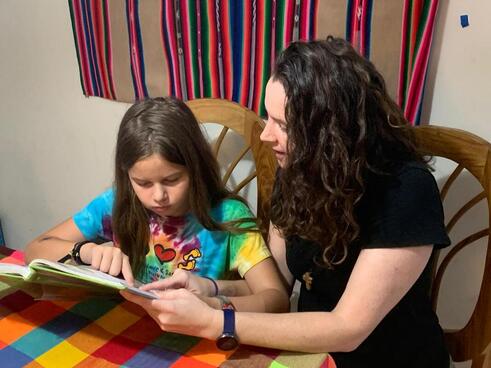 Like most of you, my family and I have been in quarantine. When El Salvador’s President Nayib Bukele first announced the prospect of a quarantine—before there were any confirmed cases here—our family decided that it would be best to practice physical distancing right away. The public hospital system here in El Salvador is precarious under normal circumstances, and once the virus is at its peak, it won’t matter how much money you have. If you require a hospital bed, you will go where there is one available. The national convention center in San Salvador is being converted into a 3,000-bed hospital, with 1,000 of those beds designated for intensive-care patients. Our best bet for surviving this pandemic is to stay home and find ways to continue our relationships with the people at our ministries without being physically present—a challenge, but also an opportunity. My ministry, the women’s cooperative ACOMUJERZA, has come to a screeching halt. We were in the middle of a huge order for the Education Ministry of El Salvador. We are sewing over 3,000 school uniforms as part of a government-funded program. This order is the biggest we have ever been contracted to make, and frankly before this pandemic our members were scrambling to figure out how we were going to sew more than 3,000 pieces in 60 days and how we were going to pay everyone to make all of those uniforms. ACOMUJERZA applied for a loan from a non-governmental organization that has helped us in the past. We received the preliminary approval for the loan, but with all of the economic uncertainty, the NGO froze all lending for the foreseeable future. ACOMUJERZA members packed up all of the finished uniforms and prepared the building for the beginning of a nationwide mandatory quarantine on Saturday, March 21. There is so much uncertainty, and yet when I talk to each of our members, they remain positive. The government has promised a government grant of $300 a month to unsalaried workers—those most in need, which applies to some of our members—but that money has not been distributed yet. With 12 days into our quarantine, I worry about how my friends at the cooperative are surviving and if they have enough food to eat. I spoke with my friend Juanita from the women’s cooperative the other day. She told me that, when she first went home after the president declared quarantine, all she wanted to do was cry. She felt depressed and sad to not be able to go to work and she felt a loss of her freedom. But after a few days, she pulled herself out of her sadness, and she told me about all of the things that she and her daughter decided to do during the mandatory quarantine. They already painted a few rooms in their house, got rid of old clothes, sewed masks and spent time tending to her garden. “Now the time just seems to be going by quickly, thanks be to God.” she said to me during our last phone call. We chatted a bit longer and before getting off the phone, she reminded me that “we are all called to do our part and, for now, our part is staying at home.” While checking over my daughter Evey’s daily journal assignment for school, I realized just how I am doing my part. She was assigned to write about what she liked and didn’t like about being homeschooled during the quarantine. She wrote, “I like homeschooling because it is fun and I get to do more fun stuff with my mom.” Maybe “doing my part” is keeping spirits up among the members of the cooperative, sharing my gifts and talents with Maryknoll Lay Missioners, spending more time with my children and modeling for them how to adjust to an ever-changing reality This blog post was re-published with permission from Maryknoll Lay Missioners. To learn more about their work and mission, please click here. To learn about other faith-based service opportunities, please click here. “According to a 2018 national survey by Cigna, loneliness levels have reached an all-time high, with nearly half of 20,000 U.S. adults reporting they sometimes or always feel alone. Forty percent of survey participants also reported they sometimes or always feel that their relationships are not meaningful and that they feel isolated.” – American Psychological Association. This is a report from 2019 about the rising levels of social isolation and loneliness experienced in the United States. It is not something new, and as days and years progress, it is likely to get worse if we do not act now. So how does the Catholic Church respond to such increasing levels of isolation? Fortunately, the Church has discussed accompaniment as a solution for a very long time. Most recently, it has been discussed at great length throughout the papacy of Pope Francis and in the recent synod on Young People, the Faith, and Vocational Discernment. As recently as last year, Pope Francis in Christus Vivit talked extensively about the Church’s role in preventing loneliness in young people. Still, as the study above shows, loneliness is not something that only young people experience. Pope Francis talks about the untethering and uprootedness of people in this way: “We need to make all our institutions better equipped to be more welcoming to young people since so many have a real sense of being orphaned. … To all these orphans – including perhaps ourselves – communities like a parish or school should offer possibilities for experiencing openness and love, affirmation, and growth. Many young people today feel that they have inherited the failed dreams of their parents and grandparents, dreams betrayed by injustice, social violence, selfishness, and lack of concern for others. In a word, they feel uprooted.…The experience of discontinuity, uprootedness, and the collapse of fundamental certainties, fostered by today’s media culture, creates a deep sense of orphanhood to which we must respond by creating an attractive and fraternal environment where others can live with a sense of purpose.” (Christus Vivit 216) So what does this mean for our parishes or for us as Catholics? Each one of us is called to accompany others on the journey of faith. Christ himself modeled this with his disciples and has charged us to do the same. Accompaniment is fundamental to Christianity. It means building an “intentional relationship that is oriented toward a definitive direction of growth in holiness and transformation in the Person of Christ.” To begin, I would suggest first taking a look at your immediate circle of connections. Family, friends, co-workers, neighbors, etc. should be your first group to encounter and accompany because they are the people you organically have relationships with each day. These are the people most likely to open up to you if they are experiencing troubles. Even then, it is essential to listen and provide a connection to Christ and the Church community. The role of accompaniment in giving someone a link to the broader Catholic community is vital, and acknowledging every baptized person’s role in this calling is essential. As the Art of Accompaniment: Theological, Spiritual, and Practical Elements of Building a More Relational Church discusses, accompaniment can serve as a powerful avenue to welcome and keep someone in the Church in ever uncertain times and events in someone’s life. It can lead to a deeper connection to Christ, a fuller integration into the world at large, and a more authentic sense of their mission to serve Christ and the Church (Art of Accompaniment, 19). Every day there are more and more people who are experiencing isolation, loneliness, and a sense of not belonging. This has only been exacerbated by the current coronavirus pandemic. Current events, personal circumstances such as their health, and many other factors can contribute to feelings of isolation. During this time, I invite you to pray about different ways you can accompany those who are feeling lonely. The Catholic Church can be a refuge in this storm of isolation and meet people where they are. Even if someone is lonely, as one of God’s children, they are never alone, and it is our job as Catholics to remind them of that fact. For more resources on accompaniment, please click here. For more resources to accompany you during the coronavirus, please click here. "What about you? What are you going to do?" These are the words of Pope Leo XIII to St. Katharine Drexel, whose feast day we celebrate today, when she spoke to him of the needs of the missions in Wyoming. The Holy Father’s response stopped Sister Katharine in her tracks, but it also made her reconsider how she approached her life of faith. Sister Katharine returned to the United States and went on to found over fifty missions for Native Americans, a system of schools for Black Catholics, and various other mission centers and schools. Every day, Christ poses to us a question similar to the one Pope Leo XIII posed to St. Katharine Drexel: “What about you? What are you going to do?” Pope Francis spoke of this encounter when he visited Philadelphia for the World Meeting of Families in 2015. He commented on the fact that St. Katharine was herself young and full of fervor for the Lord and wondered rhetorically how many young people around us have a similar energy and fervor. He asked in his homily at Sts. Peter & Paul Cathedral in Philadelphia “Do we challenge them? Do we make space for them and help them to do their part? To find ways of sharing their enthusiasm and gifts with our communities, above all in works of mercy and concern for others? Do we share our own joy and enthusiasm in serving the Lord?” The Holy Father touched on the call of all of the baptized to be missionary disciples. This call requires us to be open to all that the Holy Spirit may be guiding us to while still carrying forth the legacy of the past. The third major point that the Holy Father addressed was the role of the laity. He said, “We know that the future of the Church in a rapidly changing society will call, and even now calls, for a much more active engagement on the part of the laity.” The Holy Father’s point is that to properly answer the question, “What are you going to do?,” there must be collaboration by and co-responsibility of the lay faithful who work together with the ordained to make manifest the redemptive and salvific nature of the Church of Jesus Christ. The Holy Father then reminds us that this collaboration and co-responsibility is not a game of power and position. He says, “This does not mean relinquishing the spiritual authority with which we have been entrusted; rather, it means discerning and employing wisely the manifold gifts which the Spirit pours out upon the Church.” Each of us have been given different gifts and charisms that build up the Kingdom of God; the Holy Father challenges us to use them. The questions that Pope Leo XIII asked St. Katharine Drexel are the questions of vocation. In both our universal call to holiness that we receive from our baptism and in our particular vocation, we are faced with these questions: “What about you? What are you going to do?” We are not necessarily called to build up schools and mission centers as did St. Katharine, but to answer these questions we must be willing to be open to where the Spirit is guiding us, to see how our gifts and talents can be best utilized for the Kingdom and to answer our call to be “leaven of the Gospel in our world.” For more resources on missionary discipleship, please click here. For more resources on collaboration and co-responsibility, please click here. Quotes are very popular on social media. People tweet them, dress them up with background color or images, and add them to memes and gifs, usually for comedic effect. A few years ago, after tweeting and also posting on Facebook many quotes of St. Vincent Pallotti, I decided on Ash Wednesday to tweet, “‘Lent is not a diet program.’ -Not St. Vincent Pallotti.” I also posted it on Facebook. To my surprise, it caused a bit of a stir. It did not go viral (nothing I post does), but people I see in real life did notice (even if they did not love or like it on social media). They mentioned it and the meaning of the non-Pallotti quote seemed to resonate.
Now, I could stand to lose some weight, but Lent as a means to this end is not what the season is about. It is a time of penitential preparation that aids us in loving God and loving neighbor more fully. It is not focused on self, even if we “give something up for Lent.” The Lenten season is a time for us to look at where we are and through prayer, fasting, and almsgiving, done in cooperation with God’s grace, move to where God wants us to be. Any self-denial that we do must lead to greater selflessness. As Lent begins, we at the Catholic Apostolate Center hope that our Lenten resources might assist you in this effort. The traditional Catholic means of prayer, fasting, and almsgiving are not ends in themselves, but help us to deepen our encounter with the Risen One, Jesus Christ, in and through the community of faith and to go forth as his apostles/missionary disciples. Please know that we will accompany you in special prayer during this Lenten season. May the Charity of Christ urge us on! For resources to accompany you this Lenten season, please click here. Recently, my life has changed a lot. I had my first child, Vincent Scott Pierno, on January 31st, and he is the greatest joy I’ve ever known. I never knew that becoming a mother could fulfill my life in the ways it has, and I thank God each day for the happiness, tears, and everything in between that he has brought into my life. As a family, we’ve also started house-hunting and looking for a place to settle within this busy and chaotic Washington, DC area. My in-laws will be moving in with us, and although they’ve already been an amazing help with the newborn, it’s another change to our lifestyle. Finding joy in these changes has been challenging at times, but not impossible through the grace of God. I invite you to join me in reflecting on change in our lives and ways to find joy during times of trial and tribulation. One way to work through life’s changes is through Scripture. There are so many examples we can look to that give us strength and remind us of the goodness in change. One is Philippians 4:6-7, which says, “Have no anxiety at all, but in everything, by prayer and petition, with thanksgiving, make your requests known to God. Then the peace of God that surpasses all understanding will guard your hearts and minds in Christ Jesus.” This passage gives me hope. It can be anxiety-provoking to go through so many changes all at once, but Christ gives us strength and we can do all things with his help. Another verse from Joshua 1:9 that speaks of courage during a hectic time is: “I command you: be strong and steadfast! Do not fear nor be dismayed, for the LORD, your God, is with you wherever you go.” In Scripture, we look at examples of people who have also found change difficult and needed support from God. This reliance is the definition of faith: trust and dependence on God through all things, even when the end is not in sight. Another way to work through life’s changes is through prayer. In prayer we can develop a closer relationship with God, and in this dialogue find joy in knowing Christ more deeply. Prayer can be done in many ways: silently, out loud, in reflection, through journaling, and even through participating in the Mass regularly. Since prayer is “both personal and communal,” we can encounter Christ however we feel most comfortable. I’ve found that the most important part of this prayer is not to always ask God for things, but to offer thanksgiving and to listen. The “listening” is the hardest to do. The chaos of a busy and a constantly changing life makes it even more difficult during challenging periods to take time and listen to God. However, it is in those hard times that we can deepen our relationship with Him. The final way I’d really like to impart is by keeping track of and celebrating joy. In this age of social media and 24/7 news updates, it’s easy to see so much negativity all around us. People gossip about others, worry about things that have nothing to do with them, troll people online for their own enjoyment, and trash talk things that people don’t need to even have an opinion about. This negativity can seep into our daily lives and we can get lost in it. I invite you instead to be a whirl of positivity. As Catholics, we are called to action by being missionaries in the world. St. Vincent Pallotti suggests this in his teachings, and brilliantly states this saying, “Remember that the Christian life is one of action; not of speech and daydreams. Let there be few words and many deeds, and let them be done well.” I find his words timeless. The deeds that Pallotti refers to can be simple ones, such as celebrating anything good that comes into our lives by posting it on social media or encouraging joy in the lives of others. We could truly create small havens of joy for people to encounter by simply finding the joy that already exists. Share this joy and gratitude with at least one person, whether in-person or online. Some examples from my life include sharing in my son’s new life and looking for the good in being home with him rather than the stress. Even something as easy as a smile could change someone’s day. I invite you to use these hashtags when you post about your joys as we get through this life together in Christian spirit! #joyinChristianaction #findingjoyineverything #discoverjoyfulmoments Spiritual accompaniment has been discussed greatly today within the Church and is an important theme of Pope Francis’ papacy. While accompaniment is manifested throughout the Old Testament and in Christ’s ministry, it is important for the Church to consider how best to implement it in modern times. What does accompaniment look like today? How do we best accompany others along their spiritual journey in deepening their relationship with Jesus Christ? The Art of Accompaniment: Theological, Spiritual, and Practical Elements of Building a More Relational Church, a Catholic Apostolate Center resource developed by Colleen Campbell and Thomas Carani, assists in the growth of true accompaniment within the Church today. Below are ten quotes from The Art of Accompaniment that summarize some of the major points of this important resource in order to introduce you to accompaniment and its role for Christians today. 1. “Since the creation of human beings, God has communicated his love through a relationship with humanity…The Old and New Testament reveal the Trinitarian God to be a God who accompanies.” God models accompaniment for humanity in his self-revelation and relationship with his people throughout salvation history. After the Fall, God revealed himself in his various relationships with important figures such as Abraham and Moses in the Old Testament, culminating in the sending of his Son, Jesus Christ, for the salvation of the world. God Himself is the first model of accompaniment. We look to His example in order to understand and implement accompaniment in the Church today. 2. “Spiritual accompaniment is the apostolate of intentional relationship that is oriented toward a definitive direction of growth in holiness and transformation in the Person of Christ.” Colleen and Tom define accompaniment succinctly: spiritual accompaniment does not happen by accident, but is the result of an intentional decision made by two people. The goal of spiritual accompaniment is a deepening in one’s personal relationship with Jesus Christ and in personal holiness that transforms both the mentor and the person being accompanied, as well as those they encounter. 3. “To remain committed to this deliberate choice of discipleship, a mentor is an active participant in their own spiritual formation, deliberately choosing the path of discipleship as their everyday way of life.” A mentor never ceases to pursue holiness, personal development, and spiritual formation. These are life-long endeavors to which the mentor and the person being accompanied dedicate themselves. 4. “Listening is a crucial practice of the mentor because it not only creates space for openness between mentor and the one accompanied, but also makes room for an awareness of the presence and action of God.” An important part of the spiritual life that Pope Francis has emphasized is the art of listening. We must be silent in order to hear the voice of God and the promptings of the Holy Spirit. The ability to listen well is also incredibly important to the art of accompaniment. When a mentor is adept in the art of listening, he or she affirms the dignity of the person being accompanied and humbly leaves room for the voice of God to be heard and acknowledged. 5. “Discernment is a supernatural gift of the Holy Spirit and useful in coming to identify the movements and actions of God in daily life.” Both the mentor and person being accompanied must grow in their ability to discern the work of God and the presence of the Holy Spirit. While there are many resources within the Church that help form a person in their understanding of discernment, it is ultimately a gift of the Holy Spirit. By praying for clarity, understanding, and wisdom, and by approaching the accompanying relationship in a posture of humility, both the mentor and person being accompanied create an environment in which the actions of God are received and acted upon. Ongoing discernment is crucial to spiritual accompaniment. 6. "Mentors are formed by the community as a result of encountering diverse groups of people, listening to different perspectives, seeking guidance from others, and worshipping and seeking Christ amongst the family of the children of God." The spiritual life does not and cannot exist in a vacuum; the same is true with accompaniment. Both the mentor and person being accompanied are formed by their parishes and communities. The beauty of our relational existence is that our communities of faith are comprised of all sorts of people. This diversity within our parishes enriches each member of the Body of Christ and deepens compassion, understanding, and a spirit of inclusion that helps the mentor better accompany another person. 7. "As they share the journey of the Christian life with the one accompanied, the mentor evangelizes the accompanied by fostering an encounter with Christ in their daily life, drawing connections between the Gospel message and their everyday experiences, and encouraging them toward ongoing conversion to Christ through the relationship of accompaniment." An important aspect of accompaniment is that it is a mutual journey towards Christ. Accompaniment does not happen only in Church settings and does not only address topics of faith—it encompasses an entire life. Our faith life also does not occur in a vacuum, but should impact and inform every aspect of our existence. As a result, accompaniment helps both the mentor and the one being accompanied to draw connections between the Gospel and everyday life. 8. "Those accompanied are open to formation and display their willingness to be formed by authentically seeking holiness, collaborating with their mentor, remaining humble in the midst of difficulty, and giving thought and prayer to challenges or new ideas…they must seek faith formation through study, catechetical ministry through parishes or Catholic institutions, and their own personal learning." Humility is a crucial component of an accompanying relationship—especially for the one being accompanied. The person being accompanied acknowledges the need to walk alongside a mentor and to be formed by them in order to grow in holiness and a relationship with Christ. Therefore, the mentor is an authority figure that respectfully and lovingly informs and collaborates with the one being accompanied, as well as with the Holy Spirit. Furthermore, the one accompanied also seeks personal formation in other trusted places. 9. "In the relationship of accompaniment, the marginalized are provided a space in which they can come to deeply know the love of Jesus Christ through friendship, guidance, and authenticity with a mentor." No one is exempt from an accompanying relationship—it is an important part of the spiritual life that all are invited to. A relationship of accompaniment results in the greatest treasure on earth: friendship with and love of Jesus Christ. A mentor is more than an authority figure. He or she is a friend, helper, and guide who affirms a person’s dignity and walks alongside another to build up the Body of Christ. 10. "The inspiration and model for the apostolate of accompaniment is Mary…In Mary, the Church has a model and intercessor for the apostolate of accompaniment." We cannot have a vibrant and lasting life of faith and thriving relationship with Christ without looking to and having a relationship with His Mother, Mary. The Blessed Virgin Mary always leads us closer to her Son. By looking to her and seeking her guidance and intercession, we can be sure that our efforts to accompany and be accompanied will bear much fruit. To learn more about The Art of Accompaniment and order your copy today, please click here. |
Details
Archives
July 2024
Categories
All
|
About |
Media |
© COPYRIGHT 2024 | ALL RIGHTS RESERVED


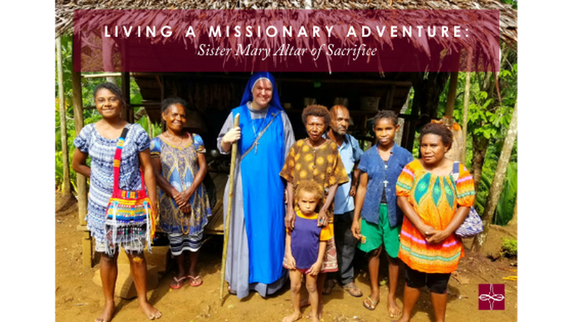
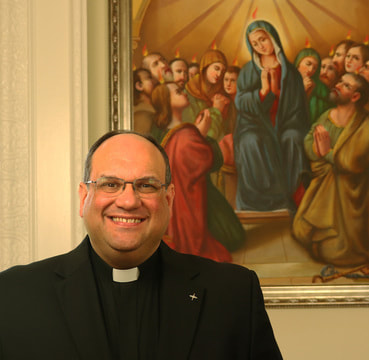
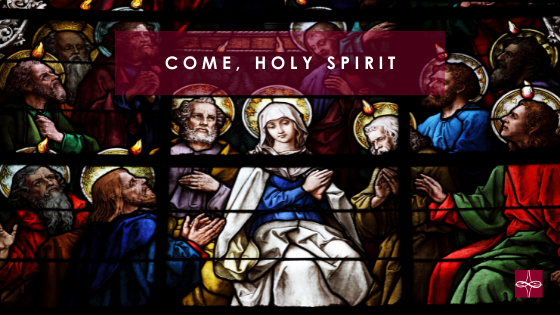



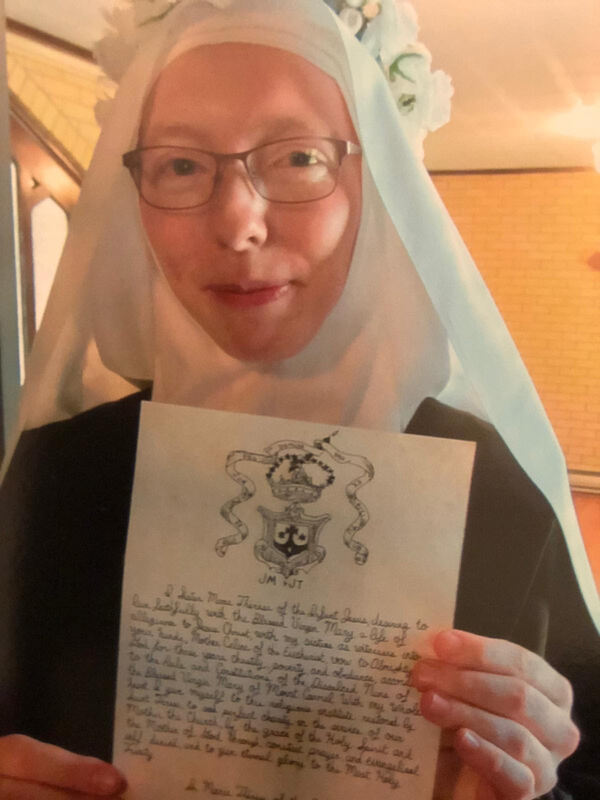


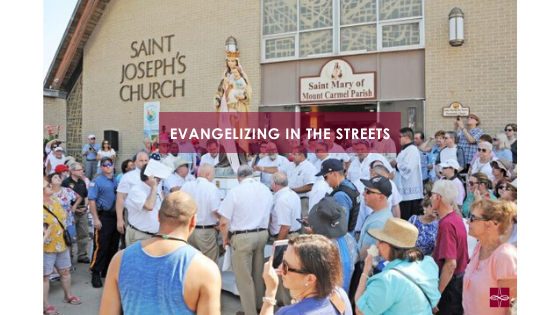
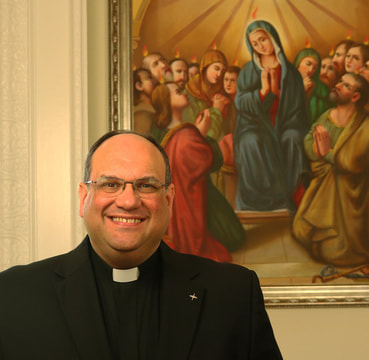
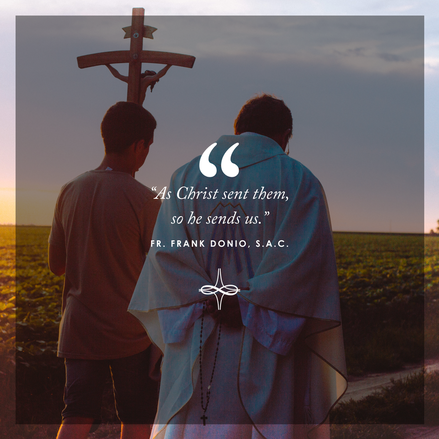
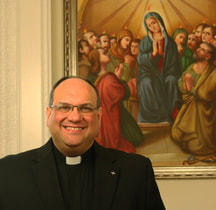
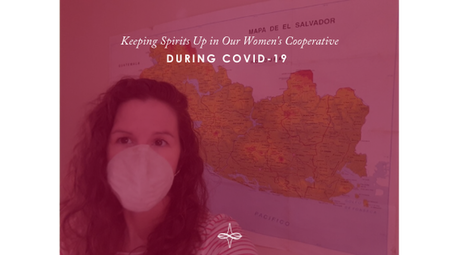




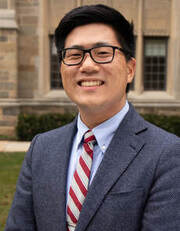
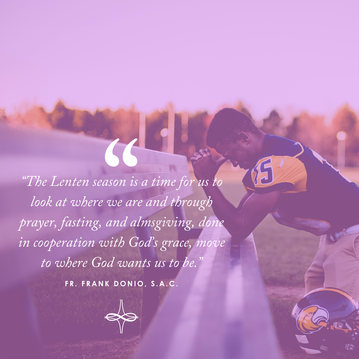
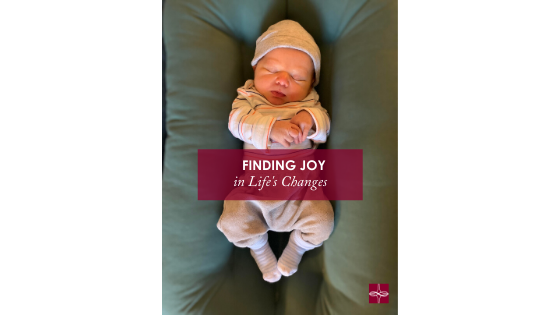



 RSS Feed
RSS Feed